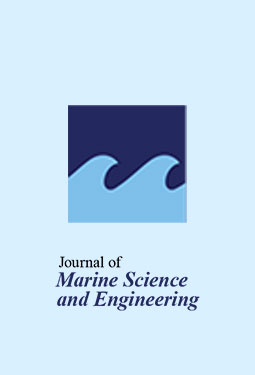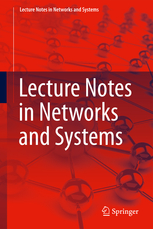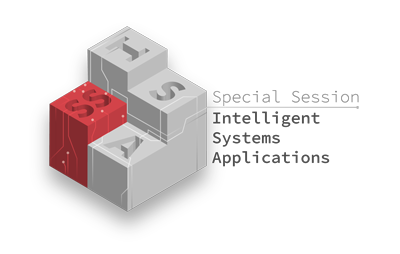Scope
The special session entitled ""New perspectives and solutions in Cultural Heritage"" is a forum that will share ideas, projects, research results, models, experiences, applications, etc., focusing on Preventive Conservation of marine and aerial Cultural Heritage. New technological proposals based on Artificial Intelligence are currently being applied as measures and processes for conserving Cultural Heritage. This special session has its main objectives:
- To maximise the value of research outcomes by promoting knowledge exchange, interactions, partnerships and inclusive engagement between cultural heritage researchers, individuals and organisations outside the immediate research community.
- To encourage the implementation and transmission of research outcomes and to communicate them and the knowledge acquired among researchers and stakeholder sectors.
The best papers of this Special Session will be invited to submit an extended version to the Special Issue “Advanced Technologies for Maritime and Underwater Archaeology—2nd Edition” of the Journal of Marine Science and Engineering.
Topics
Preventive Conservation of Cultural Heritage (CH), particularly Underwater Cultural Heritage (UCH), is crucial in safeguarding tangible testimonies of past human life preserved on the seabed. Solutions to preventive conservation in the UCH sector are still costly and sometimes very difficult to develop and implement. This is because research activities in marine environments imply more significant difficulties regarding methods and the use of advanced technologies than in the aerial environment. Underwater sites are generally difficult to access and more dangerous compared with working on dry land. Also, working in the marine environment and using specific equipment requires a lot of experience, highly skilled operators and the coordination of different " technical actors", thus keeping such solutions out of the reach of "common operators".
In this context, the whole management of an underwater site, starting from evaluating its state of conservation until the restoration works, is often carried out by "external experts, " implying enormous costs, only sometimes manageable and applicable.
In this framework, the main objective of the session is to share research solutions tailored to the technical needs of all the actors and operators working in the Preventive Conservation of Cultural Heritage, and in particular, but not limited to this, in the UCH field (i.e., underwater site manager, managing institution, managing authority, etc.).
The session tries to join experts and researchers who recently focused their work on intelligent approaches for more sustainable management of aerial and UCHs, facilitating monitoring operations, encouraging conservation in situ, and providing accurate guidelines for correct maintenance.
The main topics of the session (although not limited to these) are:
- Monitoring systems provide awareness of the artefact conservation status and the surrounding environment.
- AI-based decision support system (DSS) that helps to collect data from the aerial and marine environment.
- Data processing using AI techniques is used to infer subjacent relations among the parameters registered and to perform a comparative data analysis able to define which environmental aspects have a deeper impact on the preservation of the CH.
- Remotely Operated Vehicles (ROVs) to perform and support the monitoring and maintenance activities based on an innovative modular and configurable architecture.
- Systems management and protocols for the maintenance and enhancement of CHs.
- Underwater conservation and restoration strategies.
- Methodologies and digital tools for underwater and aerial archaeology.
- Sensors and innovative monitoring for the aerial and marine environment.
- Green Conservation strategies applied to the Cultural Heritage.
- Sustainability and Cultural Heritage: new perspectives.
So, the overall objective is to share ideas to promote and visualise different technological and digital solutions for safeguarding CHs and to understand better threats and solutions for more successful and sustainable management of CH conservation practices.
Organizing Committee
- Mauro Francesco La Russa, University of Calabria (Italy)
- Michela Ricca, University of Calabria (Italy)
- Javier Prieto Tejedor, University of Salamanca (Spain)
- Antonio Lagudi, University of Calabria (Italy)
- Marta Plaza Hernández, University of Salamanca (Spain)
Program Committee
- Natalia Rovella, National Research Council of Italy - Institute on Membrane Technology (CNR - ITM) (Italy)
- Silvestro Antonio Ruffolo, University of Calabria (Italy)
- Fabio Bruno, University of Calabria (Italy)
- Vladimir Djapic, H2O Robotics (Croatia)
- Alessandra Bonazza, National Research Council - Institute of Atmospheric Sciences and Climate (CNR-ISAC) (Italy)
- Alessandro Sardella, National Research Council - Institute of Atmospheric Sciences and Climate (CNR-ISAC) (Italy)
- Yeray Mezquita, University of Salamanca (Spain)
- Sergio Márquez, AIR Institute (Spain)
- Jorge Herrera, University of Salamanca (Spain)
- Dolores Elkin, CONICET (Argentina)


